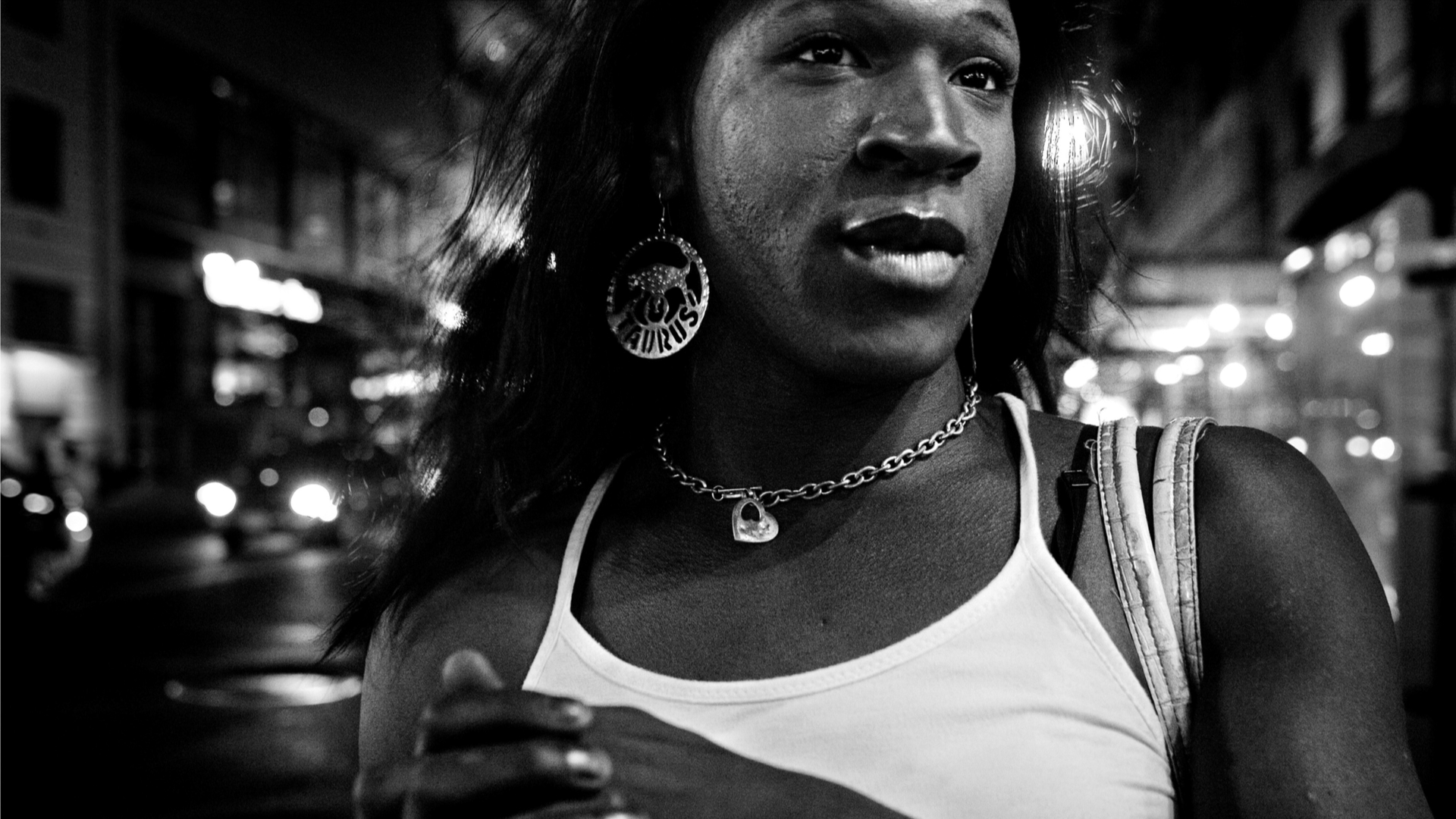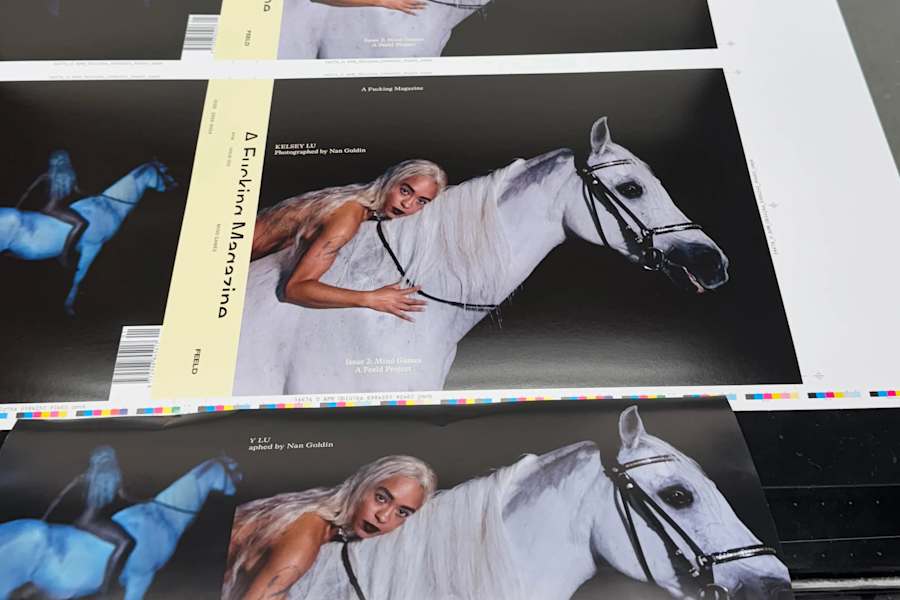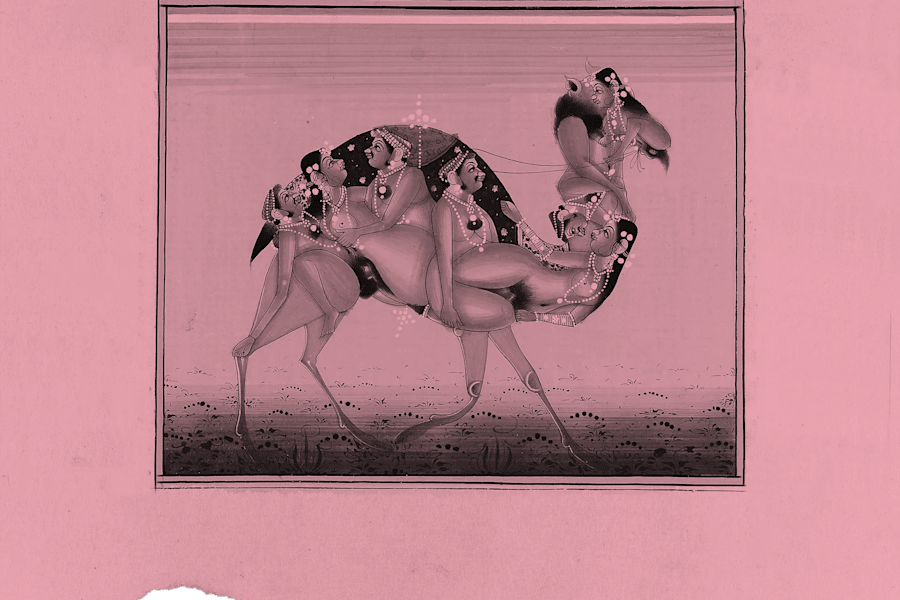Walking and talking: a conversation with Kristen Lovell and Matt Wolf

The Stroll, a new documentary about the history of trans sex workers on the west side of Manhattan, is a testament to justice and joy.
Several years ago, Kristin Lovell attended a talk by Martin Scorsese at the Lincoln Center. As she listened to him talk about New York City and his own approach to filmmaking, something “clicked in my head,” she recalled—she had her own to tell about New York. “What better story to tell,” she described herself thinking in that moment, “then the history of the Meatpacking District, and the trans women that worked there?”
That lightbulb moment almost immediately preceded her introduction to Matt Wolf, the documentary filmmaker who has made such films as Recorder and Teenage, and after their first conversation about the archive Lovell had built and her experiences of knowing the strip of street in the Meatpacking District known as The Stroll, Wolf knew that he wanted to help her make this movie. Together with co-director Zachary Drucker, known for her work on projects such as Transparent and Disclosure, they started what Lovell calls “this fabulous ride”—one that ends with the triumphant documentary titled The Stroll, now available to stream from HBO.
I spoke to Lovell and Wolf over Zoom (unfortunately, Drucker was unable to join us) shortly after the film was released, and they were elated by the outpouring of appreciation and stellar reviews. Both forms of acclaim are well-deserved, and for good reason. The Stroll tells an underrepresented history of a critical moment in both Manhattan and the overarching culture of what it means to be queer and trans in the world. The Stroll itself was where trans sex workers would gather and commune with each other; through the vivid storytelling and beautiful cinematography and photographs by Ethan Gonzalez, Samantha Box, and Katsu, Lovell’s own story comes through as part of a multi-faceted community. This is, in many ways, a history of violence and injustice towards trans women of color, but as she emphasizes in the movie and throughout our conversation, it’s also a history of joy found in moments of togetherness. The Stroll already has, and will continue to be, watched widely. Lovell and Wolf’s words below are a testament to how much their work resonates with all their audiences.
Tell us about how The Stroll got started.
Kristen Lovell:
It started with me working on the project, No Garden Left Behind. I got into the Arts Academy at Lincoln Center and, flash forward, I meet Matt at the Whitney Biennial in 2018. We started talking about the archive that I was collecting and my experiences prior. Matt came to me two months later, and was like, I want to help you make this project. He steered me in the right direction with the ‘how’ of getting everything done. And we've been on this fabulous ride ever since.
Matt Wolf:
I had organized a film program at the 2019 Whitney Biennial about the gentrification of the Meatpacking District, and brought together a collective of people who were queer youth at the time, who made a film called Fenced Out, about the gentrification of the Christopher Street Piers.
Kristen was brought up on stage by the filmmakers because she was part of that history. I remember her coming up to me and saying, “I have this big archive of trans sex workers from the Meatpacking District, what should I do with it?”
I was very compelled by Kristen, and her tenacity and the clarity of her vision. It felt like her life's work.The opportunity arose [to present the idea came] during a pitch to HBO. I was clear with them: Kristen is not a subject of this film. She's the author of it. She's the director. This is her story to be told. I was able to leverage my position and amplify what Kristen was doing so that it could be made within this community, but also reach a much broader audience without being compromised. I wanted to pair her with another trans creator, so I reached out to an old friend, Zachary Drucker, the co-director and producer. She came on board to collaborate with Kristen. The three of us really became a tight unit through the making of the film.
My goal was to set Kristen up to succeed artistically, to protect the integrity of her vision, and also, to help that point of view reach the masses. I think a lot of queer and trans storytelling is kind of subject to respectability politics, and sex work has been scrubbed from the history of trans and queer culture. Kristen is uncompromising and clear in her politics around this and her desire to rectify some of the historical wrongs. I wanted to get behind her and to support in the background.
I'm normally a director, but this was the first time I ever produced a film, because I was so inspired by Kristen’s vision.
Kristen Lovell:
And he was a fabulous producer. The best producer I've ever met.
What has it been like to finally share the film?
Kristen Lovell:
Now that we're in this moment: Oh my God! I am still trying to process it all. It's the overwhelmingly positive reviews. The community loves it. All day, all night, I’ve been getting messages and support for the film.
Matt Wolf:
Histories get erased unless somebody really fights to save them. And Kristen has done the work for decades to preserve this history, and to bring communities together who might have not otherwise found each other.
The premiere of the film was an enormous outdoor screening in the center of the Meatpacking District. It was pretty surreal. Over 1000 people came to watch the film in the various streets that are depicted before the rampant gentrification of the neighborhood. This was a real moment of reckoning and intervention. The trans women who were pushed out by the neighbors and the police were able to come back to a site of trauma, but also of joy, and to reclaim that space as theirs.
You mentioned you had this desire to share this story for a long time and particularly the interest to do so in the form of a documentary. What were some of the influences that you had when looking to make this film, documentary or otherwise?
Kristen Lovell:
I love documentaries. I spend so much of my time watching documentaries. But, it's a combination of things like, trying to figure out my style. Matt, of course, and other filmmakers that have inspired me. There are so many.
Matt Wolf:
We did become very inspired by the archival footage that our archival producer, Olivia Streisand, found. The footage that existed was mostly shot from a voyeuristic or outsider's perspective, but it captured the texture of a time that's hard to see and know.
Also, some of the aesthetic of the film—its animation—is directly inspired and derived from some of the photography that we found as well. It was less other films and more the material we found that we could recontextualize in our own way.
That was actually my next question, around the photography that you included. What was the main sourcing of those photos? Some of them are really, really beautiful.
Kristen Lovell:
It was a lot of personal photos, some things that never even made it into the film. But also the images of Ethan Gonzalez which are fabulous. It gave that Scorsese feel that I so desperately wanted. My friend, Samantha Box, was out there in the trenches with me on the Stroll taking photographs. She waited out there all night until four o'clock in the morning to snap those photos of me in this very intimate way. And I will always cherish that. Samantha Box is badass. Also, Katsu’s images. Those were the first real glossy images of the Stroll that I had seen, and they were so powerful.
So photos were a big source of inspiration, but then of course there’s the community. Could you speak to that a bit, Kristen?
Kristen Lovell:
Well, as I say, it was the community. When I was in Rikers Island, it was the older girls that taught me how to survive. On those nights that I was down, it was listening to their stories of how the old times were. We knew that the times were changing. These are my she-roes, the ones that kept my head above water. They were my inspiration, just thinking about my chosen family.
Would you say that any of that community has been able to remain without the Stroll, or any physical space where you can congregate?
Kristen Lovell:
It started with Myspace and keeping track of each other. As years progressed we all migrated to Facebook. I felt like: isn't this strange, how all of us keep track of one another after all of these years? It was fate. Even the girls that didn't make it in the film or didn't come in for an interview are all talking about it now. They’re sharing and talking about their experiences and how much they love the film. To get that feedback from them is a sign I did my job.
There was also the inclusion of the “community activist,” Harry, who was really a sort of detractor advocating for the cleanup of the Meatpacking District. Tell me about how you came to incorporate him into the film.
Kristen Lovell:
It was important to have the opposition to me, to hear the neighbors’ perspective on what their feelings were. And I get it. As a teenager, you don't give a fuck about a lot of things. Especially when we're angry and thirsty. You don't care about how the neighborhood feels. You need to do what you need to do to survive.
I just want him to know: I love Harry. He was an integral part of this film. Harry said all the time that he wasn't against the sex work. He just didn't want it on his doorstep. I get it. But we were storming the Greenwich Village area to survive in the streets of New York.
Out of those girls who didn’t survive, what was it like to tell their story in the film? Are there any stories that you especially wish could have been told more?
Kristen Lovell:
I hear a lot about Josie's story. Everybody wanted more of Josie. And as you can see in some of the images through time, she had been out there since being a young teenager. You see the images and the faces of these girls who you know have stories. But they will never be told because they lost their lives due to either the AIDS epidemic, drugs and addiction, murder. We've lost so many girls now, not just in the time of the Stroll, but moving forward to the present, to murder and violence. I wish they were here just to see this.
You mentioned those moments of joy that aren't always as well documented, because that's not necessarily what the media is going to be paying attention to. Are there any stories of this joy that was present on the Stroll that you want to share?
Kristen Lovell:
Laughter is a powerful thing. Sometimes it's the only thing that we have. So if we're gonna kiki on something like a cop, or someone whose wig is twisted—that's what we do. What made everything feel better was laughing. I'm a very optimistic person and I tend to work better in dire situations. Even before we started working on the film, the pandemic was really getting hard and it was taking a toll on me emotionally and mentally. But then there was that glimmer of hope called Matt. And we got to today. There's always a light at the end of the tunnel, even in your darkest moment. You have to have the ability to persevere, keep your head up, and keep going.


